Please note: This course will begin on March 14, 2022. It will run for 8 weeks. Another session will be held later in 2022.
Designed and Delivered By:
ResilientAfrica Network, Makerere University School of Public Health,
With support from:
Purdue University
On behalf of:
The LASER PULSE Network
Acknowledgement
This Research Leadership course is made possible by the generous support of the American people through the United States Agency for International Development (USAID) under the terms of contract no. 7200AA18CA00009, that supports Long-Term Assistance and Services for Research (LASER). The course was produced by the ResilientAfrica Network at Makerere University under the LASER contract. The contents of the course are the sole responsibility of LASER and do not necessarily reflect the views of USAID or the United States Government.
PRELIMINARIES: GETTING STARTED WITH THE COURSE
Welcome Note and Introduction to the Course
Dear Participant, you are welcome to the course titled: 21st Century Development Research Leadership for Low-income Country Higher Education Institutions. This is an online short course that provides a guided exploration of the issues as participants learn semi-independently. You will be undertaking this course together with a cohort of your peers, the profiles of which have been shared. We are happy to have you on the course and we are highly hopeful that it is a worthwhile learning experience.
Why this course?
The course is in response to the growing need for LMIC Higher Education Institutions to substantially increase their involvement in national, regional and international development efforts by generating the sort of research and innovations that speak to specific needs of development practitioners, there by accelerating the effectiveness of development interventions. To do so requires institutional leadership – the sort of leaders that will speed up the building of supportive research and innovation ecosystems that empower researchers in Higher Education Institutions in Low- and Middle-Income Countries (LMICs) to drive this change. This course comes at a time when several long-established institutions are seeking to transform into ‘research led universities’ on the one hand, while on the other hand, there is a rapid increase in new Higher Education institutions that need capacity development support to build their young and evolving research ecosystems.
The general aim of this course is to increase the leadership capacity for research and innovations in low- and middle-income Higher Education Institutions, with a view to transforming their capacity to generate research and innovations outputs that impact on national and international development. Participating in this course will provide added information and insights to the research manager who would like to integrate a more structured approach to leading the development of a vibrant research and innovation ecosystem in their institution. Once again, you are very welcome to this course!
Expected learning outcomes
Competency Statement:
By the end of this course, participants will be able to apply sound leadership principles and practices, supported by the appropriate leadership competencies, to identify their research ecosystem challenges so as to design actions that will nurture a stronger development research ecosystem in their Higher Education Institutions, either at the central governance level or at the lower academic unit levels, in resource constrained settings.
Specific Learning Objectives:
By the end of this training, participants should be able to:
- Articulate the importance of HEIs as a stakeholder in development
- Elucidate the key elements of a successful research and innovation ecosystem in LMIC HEIs
- Conduct a leadership scan in their institution to identify research and innovation capacity gaps
- Develop and deliver an action plan to address research capacity gaps in their institution so as to increase development research outputs
About LASER Pulse:
This course is organised by the Long-term Assistance and SErvices for Research (LASER) Network, a USAID funded initiative led by Purdue University. The course is developed by the ResilientAfrica Network, Makerere University, one of the network members.
LASER (Long-term Assistance and SErvices for Research) PULSE (Partners for University-Led Solutions Engine) is a five-year, $70M program funded through USAID’s Innovation, Technology, and Research Hub, that delivers research-driven solutions to field-sourced development challenges in USAID interest countries. LASER PULSE is a consortium led by Purdue University, with core partners Catholic Relief Services, Indiana University, Makerere University, and the University of Notre Dame, and is implemented through a growing network of 2,300+ researchers and development practitioners in 56 countries. LASER PULSE collaborates with USAID missions, bureaus, and independent offices, and other local stakeholders to identify research needs for critical development challenges, and funds and strengthens the capacity of researcher-practitioner teams to co-design solutions that translate into policy and practice.
About RAN:
The ResilientAfrica Network (RAN) is one of seven university Development Labs under USAID’s Higher Education Solutions Network (HESN). Covering at least 24 Universities in the region, we are the largest network of university-based professionals in Africa with the goal of enhancing livelihoods resilience through science, technology, and innovation. RAN strongly believes that while development efforts have saved millions of lives, large investments could achieve even better results in breaking the recurrent cycles of major losses from shocks and stresses if more scientific evidence is provided to develop interventions through a ‘resilience lens’. To support these efforts, HESN was designed to channel the ingenuity of university students, researchers, and faculty towards global development. RAN’s activities are hosted in four Resilience Innovation Labs (RILabs), which are centres for translation and implementation of its resilience activities. RAN has three main objectives: 1) To design and operationalize a scientific, data-driven, and evidence-based resilience framework for Sub-Saharan Africa; 2) To strengthen resilience at the individual, household, and community levels through innovative technologies and approaches to development, and 3) To enhance resilience-related knowledge and share it globally by engaging students, faculty, and development experts.
Mode of Delivery:
This course is designed to be predominantly delivered by Directed Self Learning. In this model, the course facilitators will only provide overviews to key learning modules and guidance to the participating officer but the officer will take charge of their own learning. Resources will be provided to guide the self-learning process. The majority of the course will be delivered on-line, but the course structure requires periods of collaboration with other learners through scheduled collaborative activities. The core learning content will be made available on the e-Learning site: https://laserpulse.org/courses. Different tools will be used to facilitate the process including: Readers, Videos, Discussions, Online Chat Rooms, Webinars, Quizzes, and others.
You will be guided through these different learning activities through the main self-study Workbooks, Readers and Activity guides.
Meet the Course Facilitators
The course will be facilitated by the following team:
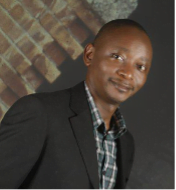
Dr. Roy William Mayega (MB. ChB, MPH, PhD)
(Course Leader)
Dr. Mayega is a Public Health Physician and Medical Scientist. He is the Deputy Chief of Party, ResilientAfrica Network (RAN) and a senior faculty in the Department of Epidemiology and Biostatistics at the School of Public Health, Makerere University (MakSPH). At ResilientAfrica Network, he oversees the day-to-day translation of the network’s strategies into implementation activities across over 24 African Universities. At Makerere University, he teaches Epidemiology, Research Methods, Disaster Risk Reduction and Disease Control and leads the efforts at integrating e-Learning into teaching at learning at MakSPH. He is also the Program Coordinator for the Strengthening Leadership in Disaster Resilience Program (SLDRP). He underwent basic training as a Medical Doctor. He holds a Master’s Degree in Public Health from Makerere, and a PhD in Medical Science from Karolinska Institutet, Sweden. He has over 21 years of experience working in public health, including 7 years at primary care level and 15 years in Higher Education and development research.
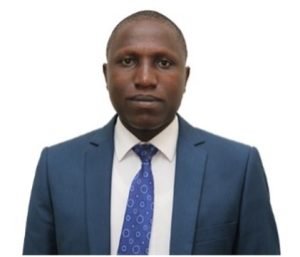
Nathan Tumuhamye (BCP, MSc, PGD (M&E)
(Facilitator)
Nathan is a research fellow at Makerere University School of Public Health and Director Operations/Director Eastern Africa Resilience Innovation Lab, ResilientAfrica Network. He holds a Bachelor’s Degree in Community Psychology, a Master’s Degree in Health Services Research of Makerere University, a post graduate Diploma in Monitoring and Evaluation from Uganda Management Institute (UMI) and is currently pursuing a PhD in Public Health with a focus on climate change and Health systems strengthening. Nathan has 10 years’ experience in project management, evaluations, research, innovation management and 6 years in Leadership position that involve multi-country implementation (Research, innovation design and management).
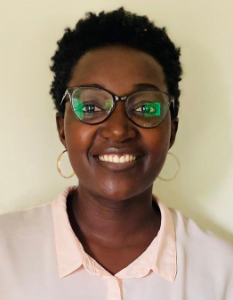
Dr. Angella Atukunda (MB. ChB, M. Med – Internal Med)
(Facilitator)
Dr. Atukunda is a Medical Doctor by basic training. She is the Engagement Officer at the ResilientAfrica Network (RAN), Makerere University School of Public Health where she coordinates research and innovation activities at the RAN innovation’s laboratory. She holds a Bachelor’s degree in Human Medicine and Surgery from Makerere University; a post graduate diploma in Healthcare Management from Uganda Management Institute (UMI) and a Master’s degree in Medicine – Internal Medicine from Makerere University. She is passionate about innovations and research for development.
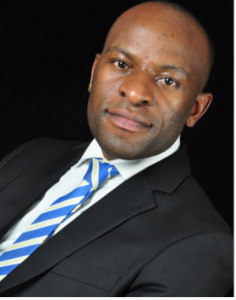
Dr. Julius Ssentongo (MB. ChB, MPH)
(Facilitator)
Dr. Julius Ssentongo is a Public Health Physician and serves as the Director Resilience at Makerere University School of Public Health, Resilient Africa Network. Currently, Dr. Ssentongo oversees an extensive and multidisciplinary portfolio of resilience research that focuses on understanding the drivers of different shocks and stresses that constantly threaten the development of communities, as well as their mitigation by leveraging innovation. Dr. Ssentongo has over 10 years working experience in the fields of Public Health, Governance, Agriculture, Technology and Education. He holds a Masters of Public Health (MPH) and Bachelor of Medicine and Bachelor of Surgery (MBChB), from Makerere University.
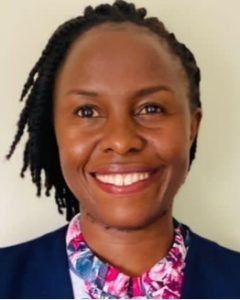
Agnes Nyabigambo (MHSR, BScN)
(Facilitator)
Agnes has Master of Health Services Research from Makerere University. She is a researcher and innovator. She works as a Projects Manager at Makerere University, School of Public Health, ResilientAfrica Network (RAN). She has successfully managed a number projects (e.g. staffing, literature and desk reviews, research protections, work plans, budget, implementation and reporting), worked with other researchers, and produced peer-reviewed publications from each project. She values the importance of frequent communication among project members and of constructing realistic research plans, timelines, and budgets. She believes that innovative science is gap that needs to be addressed through identifying fast, low cost and effective community solutions to improve development.
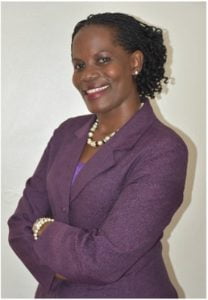
Harriet Adong
(Facilitator)
Harriet is Program Development and Communications Specialist and is currently the Director Communications, Learning and Knowledge Management at Makerere University School of Public Health-ResilientAfrica Network (RAN) www.ranlab.org. Harriet has excellent interpersonal and communication skills and is able to multitask and adapt to fast-paced environments. She has vast experience in working with various strategic actors including individuals, institutions and organizations to maximize their potential to effectively influence change, foster innovation and communicate development and policy impacts.
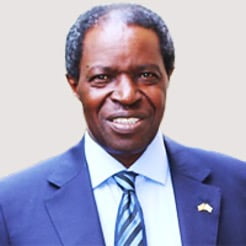
Prof. William Bazeyo (MB. ChB, M. Med (Occup. Med.), PhD)
(Facilitator)
William Bazeyo is a Ugandan Physician, Academician and a Professor of Occupational Medicine at Makerere University. He is the Chief-of-Party, ResilientAfrica Network. He holds a Medical degree (MB ChB) from Makerere University, a Master of Medicine degree (Occupational Health) from the National University of Singapore, a Ph.D from Atlantic International University and a Doctor of Science (Honorary Degree) from Tufts University. He also obtained a certificate in Authentic Leadership Development from Harvard Business School. His career in Public Health spans a period of over 30 years. He has served Makerere University in several administrative positions including Dean Makerere University School of Public Health, Deputy Vice Chancellor Finance and Administration, and Head Grants and Management Support Unit. He has a long track record of establishing and leading large research networks in Africa including the RAN, the Africa One Health University Network, the Leadership Initiative for Public Health in East Africa, the Center for Tobacco Control in Africa (CTCA). He is also credited with establishing the first government Research and Innovation Fund at Makerere University and leading the inaugural board of the National Science and Technology Innovation Fund for Uganda.
Structure of the course
This course is organized in Five (5) modules spread over 8 weeks, in addition to half a week for the initiation and another half-week for the final evaluation. Participants should complete the modules in the order that they are presented. Participants will be required to complete a module and a knowledge quiz before proceeding to the next module. Each module is then composed of
Background to the course
The enormous challenges that characterize development in low-income countries require innovative interventions that transcend ‘business as usual’. Such interventions need to be research and innovation driven to generate the evidence needed for them to be transformative. However, the level of such locally generated evidence in Low Income Countries (LICs) is generally low and is insufficient to solve the sizeable volume of research questions needed to inform development programming for the most disadvantaged communities and to accelerate transformative change.
Low Income Country Higher Education Institutions (HEIs) including Universities are strategically placed to address this evidence gap. They have large pools of experienced scholars in proximity to the target communities: The local researchers are actual residents of the country. Local researchers have the advantage of contextual knowledge compared to external researchers. Some local researchers come from the very marginalized communities targeted in these countries and have variously experienced the same struggles and predicament as the target communities, but managed to pull through these challenges to attain the highest levels of education and the status that comes with it.
But what is prohibiting researchers in low-income country Higher Education Institutions from generating research and innovations to the level needed to accelerate development and social transformation? The answer to part of this question lies in understanding the gaps in the research ecosystems of Higher Education Institutions in LICs.
Very often, research ecosystems in HIEs in LMICs are not adequately equipped to provide the support needed to increase the volume of research and innovation evidence that will bridge the evidence gap needed for transformative development. On the other hand, a lot of research generated by LIC remains on the shelves either because the demand ecosystem (the would-be users of this evidence) does not know it exists or is produced and/or disseminated in formats not suitable for development practitioners.
This course will provide you with foundational principles on how research managers in higher education institutions lead the development of a vibrant ecosystems to support Development Research and innovation. It will give you insights in the core elements that leaders need to consider in building a resilient R4D ecosystem for HEIs. But first, in order to understand ‘development research’, we have to first understand development.
Course outline and duration
- This course in organised into 4 modules. Each module is composed of 4 sessions, hence a total of 16 sessions.
- Each Module is scheduled to last 2 weeks, implying that each Session is to last half a week and the total duration of the course is 8 weeks.
- The content of each session is estimated to last 3 hours of continuous reading. If spread out over 3 days therefore, each session should last approximately 1 hour of reading per-day for 3 days, or 1.5 hours of reading for 2 days.
The detailed layout of the learning activities for the entire course is as follows:
| MODULE ONE: IMPORTANCE OF DEVELOPMENT RESEARCH LEADERSHIP IN LOW INCOME COUNTRY HIGHER EDUCATION INSTITUTIONS |
| WEEK 1: |
| Pre-activity 1: Introduction to the course and getting to know each other |
| Session 1.1: Meaning, importance, and characteristics of Development Research |
| Session 1.2: Research Leadership: Definition and importance for Low Income Country Higher Education Institutions |
| WEEK 2: |
| Session 1.3: What constitutes the University Research Ecosystem? |
| Session 1.4: Diagnostic Activity 1: SWOT Analysis – Understanding your HEI’s resource ecosystem |
| Discussion Forum 1: What should be the research focus of Low-Income Country Higher Education Institutions? |
| Quiz 1. End of Module 1 knowledge check |
|
|
| MODULE TWO: LEADERSHIP CHALLENGES IN LOW INCOME COUNTRY HIGHER EDUCATION RESEARCH ECOSYSTEMS |
| WEEK 3: |
| Pre-activity 2: Rapid institutional capacity assessment survey |
| Session 2.1: The Leadership Challenge Model |
| Session 2.2: Common challenges and gaps in the research ecosystems of LMIC HEIs |
| Key Note Address 1: Transformative leadership |
| WEEK 4: |
| Session 2.3: Diagnostic Activity 2: Scanning – Identifying the Research Ecosystem challenges and gaps in your institution |
| Session 2.4: Diagnostic Activity 3: Scanning – Analysing Your institution’s relevance to stakeholders and the gaps |
| Webinar 1: Challenges affecting research ecosystems in Low Income Country Higher Education Institutions |
| Quiz 2. End of Module 2 knowledge check |
|
|
| MODULE THREE: INTERVENING TO ADDRESS RESEARCH ECOSYSTEM CHALLENGES IN LOW INCOME COUNTRY HIGHER EDUCATION INSTITUTIONS |
| WEEK 5: |
| Pre-activity 3: Opinion Poll |
| Session 3.1: Getting ready to lead |
| Session 3.2: The elements of a successful University Research Ecosystem |
| Key Note Address 2: What does it take to build a successful research ecosystem? |
| WEEK 6: |
| Session 3.3: Planning Activity 1: Focusing – Identifying actions to address Research Ecosystem challenges/gaps |
| Session 3.4: Planning Activity 2: Focusing – Identifying actions to increase relevance to Development Research stakeholders |
| Discussion Forum 2: How can LMIC Higher Education Systems overcome resource constraints as they strive to strengthen research? |
| Quiz 3. End of Module 3 knowledge check |
|
|
| MODULE FOUR: TAKING YOUR HIGHER EDUCATION INSTITUTION’S RESEARCH ECOSYSTEM TO ANOTHER LEVEL |
| WEEK 7: |
| Pre-activity 4: Rapid innovation capacity assessment survey |
| Session 4.1: Considerations for building vibrant innovation ecosystems in Low-Income Country HEIs |
| Session 4.2: Building effective Research Networks |
| WEEK 8: |
| Session 4.3: Leading change |
| Session 4.4: Planning Activity 4: Finalizing your Leadership Action Plan |
| Webinar 2: Building Vibrant Innovation Ecosystems in Low Income Country Higher Education Institutions |
| Quiz 4. End of Module 4 knowledge check |
Curriculum
- 9 Sections
- 8 Lessons
- 2 Weeks
- Inaugural WebinarInvitation to the Inaugural Webinar for the RAN/LASERPULSE Research Leadership Course - Monday, Mar 14, 2022 from 3pm – 4pm East Africa Time.1
- Module 1 - IntroductionIn the first module of this course, we shall explore the importance of development research leadership and why Higher Education Institutions in low-income countries need to be at the forefront of providing leadership in this important area.1
- Session 1.1. - Meaning, Importance, & Characteristics of Dev ResearchIntroduction: Before we delve into development research leadership, we are going to take a look at the meaning of development. We shall look at what constitutes development initiatives as well as what constitutes international development. After getting a clear understanding of development, the different levels of development interventions, and the stakeholders, we shall pivot to the meaning and importance of research and explore how research contributes to the improvement of development outcomes. Session objectives: By the end of this session, participants should be able to: Define development and differentiate between local and international development Outline the components of global development and the key stakeholders involved Define development research and discuss its importance in fostering the attainment of better development outcomes Contrast the approach to development research with that for basic research1
- Session 1.2. - Research Leadership - Definition & Importance for LMIC HEIsIntroduction: In the previous sessions, we defined development and looked at what constitutes international development. We then went on to define development research. In this session, we advance these concepts by delving into research leadership. We shall see that while LIC HEIs have a central role to play in providing solutions through research, the research ecosystems in many HEIs are not adequately tapping into these institutions’ potential. Addressing this gap requires leadership. We shall look at what research leadership means and why it is important for LIC HEIs. Session objectives: By the end of this session, participants should be able to: 1. Elucidate the role of LMIC Higher Education Institutions in providing leadership in development research 2. Define research leadership 3. Defend the need for development research leadership in LMIC HEIs 4. Describe the core practices of a leader while relating them to research leadership1
- Session 1.3. - What constitutes the University Research EcosystemIntroduction: We have up to this point looked at the importance of LMIC HEI involvement in development research and why leadership is needed to drive this change. We also looked at the practices the practices that leaders undertake on getting teams to address challenges. In this session, we begin the processes leading to a full understanding of leadership challenges in LMIC institutions by getting a good understanding of what constitutes a university research ecosystem. A good understanding of the components of a university research ecosystem lays the foundation for leaders to be able to examine the different components to identify challenges and gaps. Session objectives: By the end of this session, participants should be able to: 1. Explain the meaning of a university research ecosystem 2. Identify the key resources in a University Research Ecosystem, relating it to their own research unit 3. Describe the different components of a university research ecosystem1
- Session 1.4. - Diagnostic Activity 1 - Understanding Your Research EcosystemIntroduction: In this session, we build on the previous session by conducting the first diagnostic exercise of our series. A SWOT analysis of your research resource ecosystem will provide insights into your institution’s strengths and gaps. Session objectives: By the end of this session, participants should be able to: 1. List and explain the core strengths and opportunities in the research-related resource ecosystem of their HEI 2. Identify and explain the main weaknesses and threats in the research-related resource ecosystem of their HEI1
- Discussion Forum 1 - What Should be the Research Focus of LMIC HEIsNote: You must be a laserpulse.org member to participate. Upon first visit to the forum, you will be asked to complete a user profile. We appreciate your cooperation.1
- Module 1 Quiz1
- Module 1 References1
Leave a Reply
You must be logged in to post a comment.

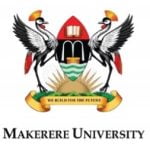
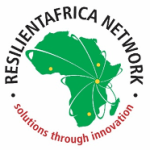

Comments (17)
Hello. I am so excited to be part of this course.
I clicked on ‘finish course’ instede of complete and received message which says ‘course blocked’. Is it from Module 1 only or from entire course? Help me to progress to next modules of Development Research Leadership. Thank you
Im ahappy to be part of this course, it revalidates the HEIs setting changes that are due and to be applied
Started a bit late but I hope that I will be able to finish the course within the timelines.
A very interesting and timely training indeed.
Excited to be part of this course. Ignatius Asasira is my name, fifth year medical student at Makerere University and vice President for Federation of Uganda Medical Student’s Assoication.
I am glad to meet all of you on this course. Though I started late, I hope to catch up once I can navigate and find my courses easily.
Hullo,
I am glad to be part of this programme. Greetings to you all.
Greetings,
First module covered a great deal of HEIs current situation in LMIC/LIC and the need for a good leadership to move these HEIs forward and gradually bring them to 21st century development research. Thank you.
Thanks to the team who put the course together. I have enjoyed the course.
My take home message is leadership is vital where the state of a system needs to be transformed.
To increase the performance of a leader its important to develop leadership.
A strong research ecosystem in Africa is dependent on higher education institutions transformation.
I am glad to be part of this short course. Greetings to you all.
Reading and completing first module of the course, I enjoyed reading interesting a lot of learning materials/literature which enriches and enhances my understanding towards utilizing and implementing what I learned at individual level and institutional level. Thanks for those of you who compiled this informative information.
i am happy that i managed to pass this module
thanks so much for this interesting module
joining in late. Thanks for this opportunity to learn. I am yet to complete the first module which I hope to put in effort to catch up with the rest of the participants
Thanks to the organisers and facilitators of this course i have really learnt a lot
Thanks , for guide Simon Siyang Moses from South Sudan